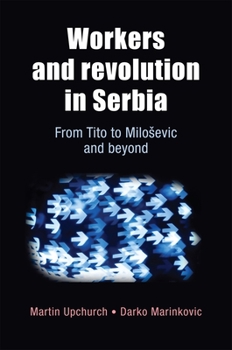Workers and Revolution in Serbia: From Tito to Milosevic and Beyond
This book offers a refreshing new analysis of the role of workers both in Tito's Yugoslavia and in the subsequent Serbian revolution against Milosevic in October 2000. The authors argue that Tito and the Communist leadership of Yugoslavia saw self-management as a modernising project to compete with the West, and as a disciplining tool for workers in the enterprise. The socialist ideals of self-management were subsequently corrupted by Yugoslavia's turn to the market. The authors then move on to examining the central role of ordinary workers in overthrowing the nationalist regime of Milosevic and present an account which runs contrary to many descriptions of 'labour weakness' in post-Communist states. Organised labour should be studied as a movement in and of itself rather than as a passive object of external forces. Two labour movement waves have emerged under post-Communism, the first an expression of desire for democracy, the second as a collaboration and clientelism. A third wave, against the ravages of neoliberalism, is only just emerging.
Format:Hardcover
Language:English
ISBN:071908508X
ISBN13:9780719085086
Release Date:November 2013
Publisher:Manchester University Press
Length:160 Pages
Weight:0.85 lbs.
Dimensions:0.8" x 6.2" x 9.2"
Customer Reviews
0 rating





